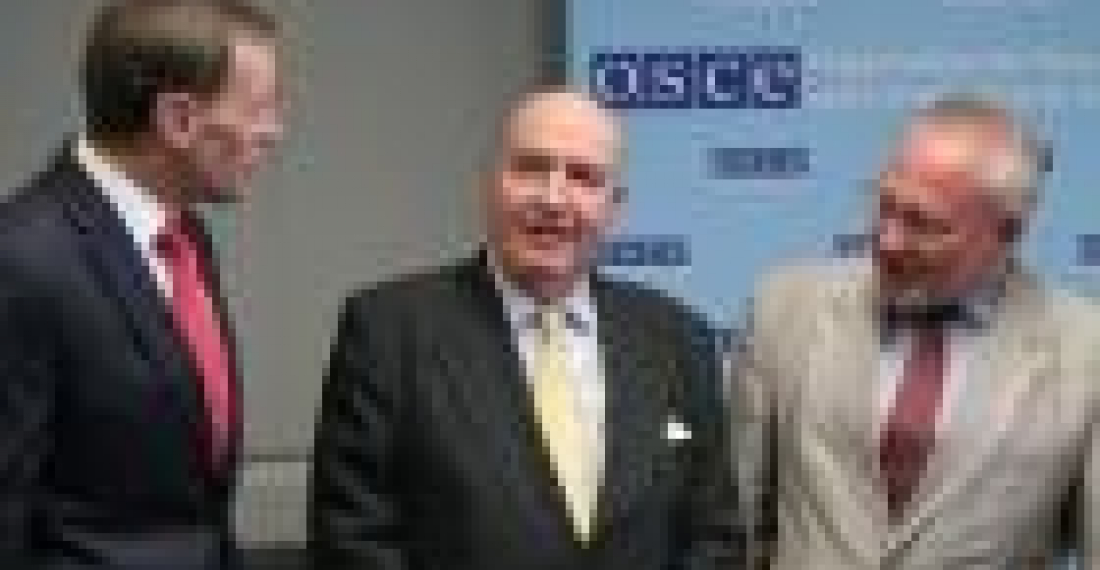The Co-Chairs of the OSCE Minsk Group (Ambassadors Bernard Fassier of France, Robert Bradtke of the United States, and Igor Popov of the Russian Federation) and Ambassador Andrzej Kasprzyk (Personal Representative of the OSCE Chairperson-in-Office) met separately on July 4 with Secretary General Lamberto Zannier and with the OSCE Minsk Group to discuss the status of the ongoing peace process to resolve the Nagorno-Karabakh conflict. The Co-Chairs briefed on the outcome of the June 24 meeting in Kazan, in which Russian President Medvedev hosted Armenian President Sargsian and Azerbaijani President Aliyev, and they discussed the next steps required to finalize the Basic Principles as the framework for a comprehensive peace settlement.
Although the sides did not reach final agreement on the Basic Principles at Kazan, progress was made. The outcome of Kazan, including confirmation by the sides that they will continue to seek a negotiated settlement, provides momentum that the parties should use to reach agreement on the Principles as soon as possible. The remaining differences should not prevent the sides from accepting the Basic Principles and moving on to the treaty-drafting phase of the peace process. As Presidents Medvedev, Sarkozy, and Obama remarked in their May 26 joint statement at Deauville, further delay only calls into question the commitment of the sides to reach an agreement.
The Co-Chairs plan to hold consultations in Moscow and to visit the region in the near future.
source: OSCE web site www.osce.org







